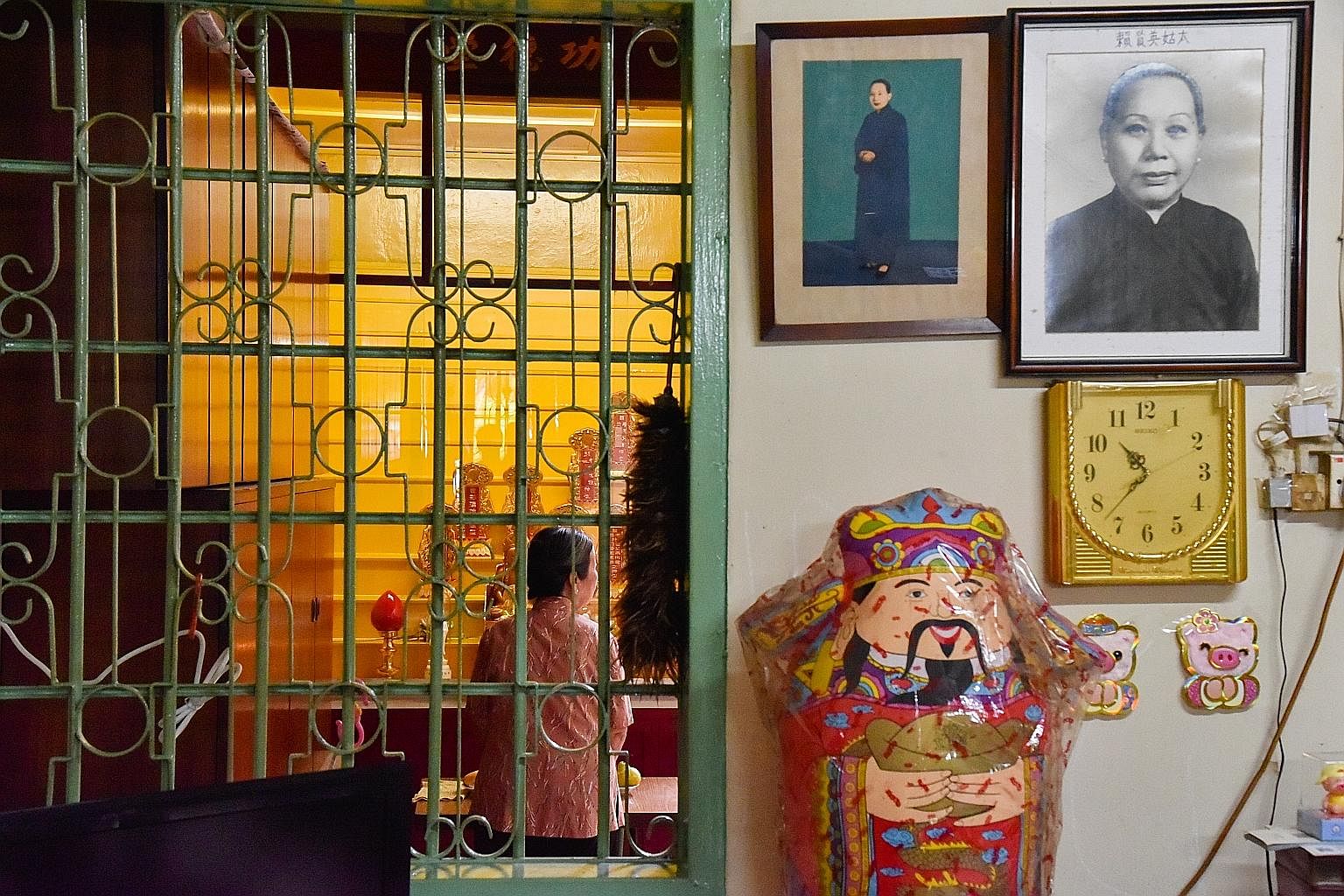For subscribers
Hidden women's abodes: Singapore's vegetarian nuns and aunts
Researcher studies little-known local history of vegetarian halls whose numbers are dwindling.
Sign up now: Get ST's newsletters delivered to your inbox

The prayer room at the back of the Guanyin Gong vegetarian hall in Cuff Road. The woman in the black and white portrait is the late Ms Wong Ying, the hall's founder. There are about 30 such halls in Singapore today and they have housed unmarried, widowed, destitute, abused and orphaned girls and women since the late 19th century.
ST PHOTO: JASMINE CHOONG
It looks like a typical temple dedicated to Guanyin, but behind the altar of the goddess are living quarters for women.
The Little India shophouse unit at 19 Cuff Road has been home to a low-profile group of "vegetarian aunts" and their adopted daughters since it was established in 1954 by a Hakka woman.


